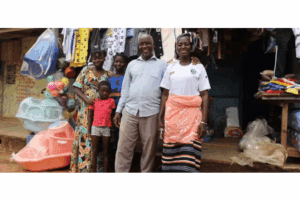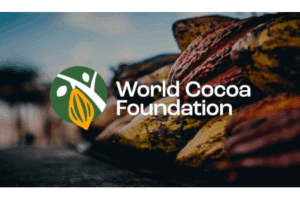ofi (olam food ingredients) has said that it has “substantially advanced” towards climate goals as set out in its Cocoa Compass sustainability report 2020/2021. In order to achieve structural change required to have an impact, the report sets out that work in cocoa communities needs to be supported by international collaboration and regulation.
In the report, ofi shares its sustainability progress across its cocoa supply chain, thanks to the collaboration between customers and partners, having collected three years of impact data. Including the Amazon rainforest and the Ivory Coast, the company says it has taken steps to protect and restore forests, it distributed 1.75 million trees to farmers and improved its deforestation monitoring.
The company aimed to reduce its CO2 emissions per metric ton of product from its cocoa processing facilities and has reported a decrease of 19% since 2018, by installing circular biomass boilers fuelled by waste cocoa shells and shifting to green electricity. The boiler at the Koog aan de Zaan facility in the Netherlands will allow ofi to target a 50% cut in natural gas usage.
“We need to keep the 1.5 degrees climate ambition alive,” said Gerard A. Manley, CEO of ofi’s cocoa platform and Chief Sustainability Officer at ofi. “That means driving climate action at every stage of our supply chain, from plant to palate, supporting customers on their own decarbonisation journeys, and reassuring consumers that their favourite chocolate bar, baked good, or ice cream is having a positive impact on the cocoa communities and landscapes it came from.”
The report also includes action to eliminate child labour and raise farmer incomes, the company says, as child labour monitoring is in place and the company’s CLMRS app already being used in Central and West Africa, Brazil and Indonesia, was also extended to Papua New Guinea.
“The progress we’ve made so far is thanks to the joint efforts of customers, sustainability partners, and national and local authorities. These issues are bigger than any one organization; we need collaboration and regulation to help achieve structural change, including the right legislation in cocoa-consuming and producing countries. Working together, the international community can drive change at scale,” added Mr Manley.
All cocoa data collected by ofi can feed directly into AtSource, the company says, which is its sustainability insights platform where companies are given full visibility of their cocoa’s environmental and social impact.
“Since 2018, we have been working with ofi and other partners to restore areas of the Brazilian Amazon rainforest. By successfully creating a one-stop shop for cocoa farmers to access technical assistance, financial credit, and a market to sell their cocoa, we have already brought over 17,000 hectares of land under sustainable management,” concluded Felipe Faria, LATAM Regional Manager at Partnerships for Forests (P4F).
Stay up-to-date on the latest industry news and developments in our magazine.
Never miss a story… Follow us on:
![]() International Confectionery
International Confectionery
![]() @InConfectionery
@InConfectionery
![]() @InConfectionery
@InConfectionery
Media contact
Caitlin Gittins
Editor, International Confectionery
Tel: +44 (0) 1622 823 920
Email: [email protected]








